Why Rwanda Should Be on Your Bucket List: Insider Tips for Exploring the Land of a Thousand Hills
Nestled in the heart of Africa, Rwanda, often referred to as the “Land of a Thousand Hills,” is a gem waiting to be discovered. With its breathtaking landscapes, rich cultural heritage, and an extraordinary commitment to conservation, this country offers one of the most unique travel experiences in the world. Whether you’re an intrepid adventurer, a wildlife enthusiast, or someone simply looking to soak in natural beauty, Rwanda deserves its place on your bucket list. So, why not pack your bags and experience the magic yourself? Here’s everything you need to know to craft the trip of a lifetime, complete with insider tips to make the most of your journey.
Why Rwanda is a Must-Visit Destination
When you think of Rwanda, gorilla trekking likely springs to mind. While it’s undoubtedly the crown jewel of Rwandan tourism, this small but mighty nation offers so much more. From rolling hills draped in lush green vegetation to bustling cities humming with innovation, Rwanda combines raw natural beauty with an inspiring story of resilience and progress.
Allow us to take you on a journey of discovery as we unveil why Rwanda is quickly becoming a travel hotspot and how you can explore its wonders like a seasoned traveller.
1. A Wildlife Lover’s Paradise
Gorilla Trekking in Volcanoes National Park
Rwanda is one of only three countries where you can experience the once-in-a-lifetime thrill of observing mountain gorillas in their natural habitat. Volcanoes National Park, part of the Virunga Conservation Area, is home to these majestic creatures. A trek through the dense rainforest is challenging yet hugely rewarding as you come face-to-face with a gorilla family in the wild.
Tip: Gorilla trekking permits are limited and must be booked well in advance through organisations like Nihosi Travels & Tours for a seamless experience. While the permit costs $1,500, the memories are truly priceless.
Akagera National Park: A Big Five Safari Experience
Did you know Rwanda is home to Africa’s famous Big Five? Akagera National Park teems with lions, elephants, rhinos, leopards, and buffalo, thanks to Rwandan conservation efforts. A game drive here offers incredible opportunities for spotting abundant wildlife, from giraffes strolling gracefully across the savannah to hippos lounging in serene lakes.
Tip: For the ultimate safari experience, opt for a guided tour. Guides have an incredible knack for finding wildlife that might elude the untrained eye.
Nyungwe Forest National Park: A Haven for Chimpanzees
Step into one of Africa’s oldest rainforests, Nyungwe Forest National Park, and immerse yourself in biodiversity like no other. Here, you can trek to witness playful chimpanzees swinging through the trees or embark on a canopy walk for a bird’s-eye view of the forest.
Tip: Wear sturdy hiking boots and long sleeves, as the terrain can be challenging and bugs aplenty!
2. A Nation of a Thousand Hills: Unique Landscapes
Lake Kivu: Tranquillity on the Shores
Lake Kivu, nestled on the border with the Democratic Republic of the Congo, is one of Africa’s Great Lakes. Its serene atmosphere is ideal for relaxing after an adventurous few days of gorilla trekking or safari. Whether you’re kayaking, enjoying a boat ride, or simply unwinding at a lakeside resort, this is a hidden paradise you don’t want to miss.
Tip: Stay in Gisenyi, a charming lakeside town offering cosy accommodations and a range of water activities. Many properties have unbeatable sunset views!
Hiking and Exploring Rwanda’s Hills
Everywhere you turn in Rwanda, rolling hills frame the scenery like a carefully painted masterpiece. If you’re a hiking enthusiast, trails like the Congo Nile Trail provide a great mix of adventure and cultural immersion. Passing through green hills, quaint villages, and coffee plantations, this trail is a trekker’s dream.
Tip: Hire a local guide to not only navigate the trail but gain insights into Rwandan culture and traditions.
3. Discover Kigali: A Modern and Vibrant Capital
Kigali, Rwanda’s capital, perfectly balances modernity with tradition. Renowned for being one of the cleanest cities in Africa, Kigali captivates visitors with its safe streets, bustling markets, and gourmet dining spots.
Cultural Highlights in Kigali
- Kigali Genocide Memorial: A sobering yet vital experience, this site honours the victims of Rwanda’s 1994 genocide while educating visitors about the country’s incredible journey toward reconciliation and growth.
- Inema Arts Centre: For a dose of creativity, visit this vibrant space showcasing contemporary art and local talent.
Food and Dining in Kigali
Rwandan cuisine is a medley of fresh ingredients and bold flavours. Don’t miss dishes like brochettes (skewered meats), sambaza (grilled fish), and isombe (cassava leaves stewed with peanuts). Kigali’s growing foodie scene also boasts fine dining restaurants offering creative farm-to-table menus.
Tip: Try Republica for stunning views paired with a delicious take on traditional Rwandan fare.
4. Immerse Yourself in Rwandan Culture
Intore Dance Performances
No trip to Rwanda is complete without witnessing a traditional Intore dance performance—a captivating display of high-energy drumbeats, colourful attire, and storytelling.
Visit Local Villages
Rwanda pridefully preserves its cultural heritage, which you can experience in its small villages. Dukore’s local engagement program allows tourists to learn basket weaving, banana beer brewing, or traditional cooking alongside community members.
Tip: Interacting with locals offers not only an enriching cultural exchange but also an opportunity to support grassroots tourism initiatives.
5. Sustainability and Conservation Efforts
One of the key reasons Rwanda shines as a tourist destination is its exceptional commitment to sustainability and conservation. The country has established effective measures to protect its natural resources and wildlife while maintaining eco-friendly tourism practices.
Umuganda: The National Day of Community Service
Every last Saturday of the month, Rwandans come together to clean their neighbourhoods, plant trees, and carry out other community tasks. Tourists are welcome to join in this initiative and witness a nation united for a common cause.
Tip: Check ahead to see if your travel dates coincide with Umuganda Day to take part.
6. Practical Tips for Travelling to Rwanda
Best Time to Visit
Rwanda can be visited year-round, but the dry seasons (June to September and December to February) are considered the best for gorilla trekking and outdoor activities.
How to Get Around
Transport in Rwanda is well-organized, with plenty of safe options available. For convenience, consider hiring a private driver or booking transport through Nihosi Travels & Tours.
Packing Essentials
- Lightweight layers (temperatures can vary),
- Waterproof jacket for the occasional downpour,
- Comfortable hiking boots,
- High-SPF sunscreen.
Health and Safety
Rwanda is one of the safest countries in Africa, and its excellent healthcare system ensures a worry-free trip. Be sure to consult with your doctor on necessary vaccinations and bring mosquito repellent to guard against any risk of malaria.
Why Rwanda Deserves a Spot on Your Bucket List
Rwanda is an extraordinary travel destination that leaves no traveller untouched. Beyond the iconic experiences like gorilla trekking, the country offers history, serenity, culture, and a whole lot of heart. More than that, visiting Rwanda supports its thriving eco-tourism industry, ensuring a positive impact on the people and wildlife who call this land home.
So, what are you waiting for? Book that ticket, strap on those hiking boots, and let the Land of a Thousand Hills work its charm on you.
FAQs About Travelling to Rwanda
1. Is Rwanda safe for tourists?
Yes, Rwanda is considered one of the safest countries in Africa for tourists.
2. How do I book a gorilla trekking permit?
Permits can be booked through tour operators like Nihosi Travels & Tours or directly via the Rwanda Development Board.
3. What is the currency in Rwanda?
The local currency is the Rwandan Franc (RWF), though USD is widely accepted in major towns.
4. Are there direct flights to Rwanda?
Many international airlines operate direct flights to Kigali International Airport.
5. What languages are spoken in Rwanda?
Kinyarwanda is the native language, while English, French, and Swahili are also widely spoken.
For more travel insights and expert-led tours to Rwanda, visit Nihosi Travels & Tours.

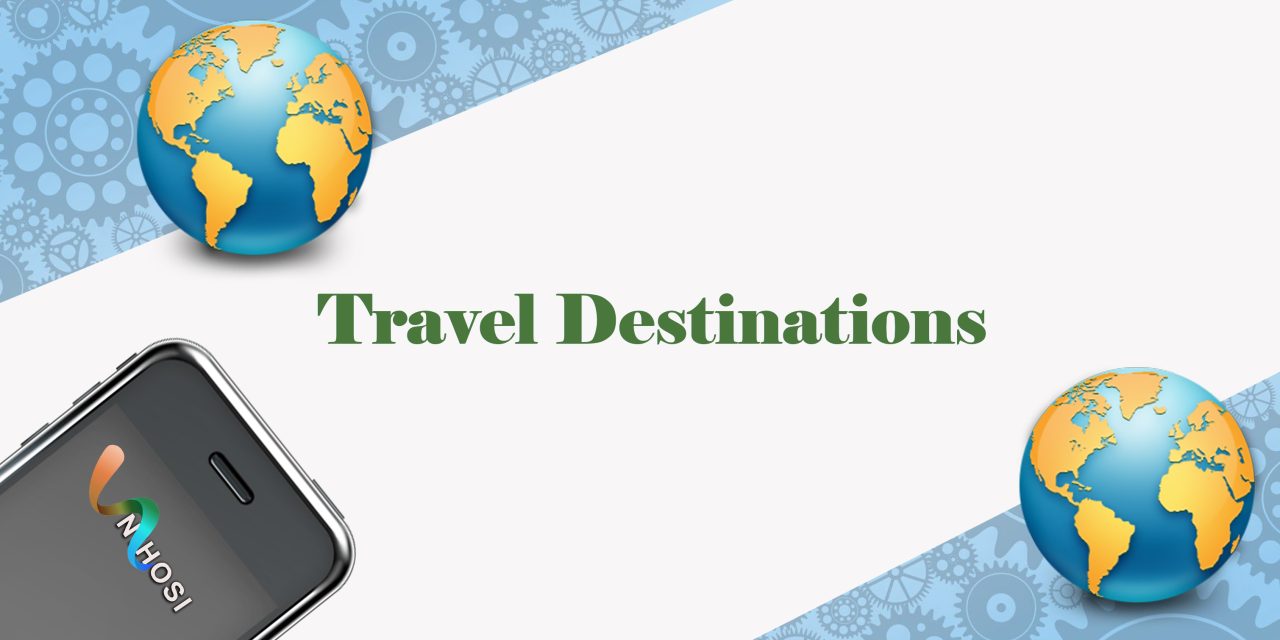
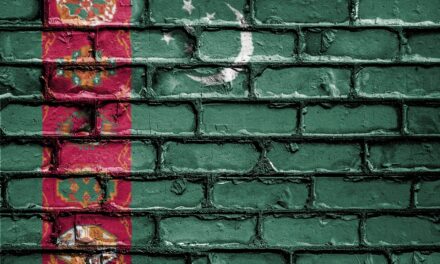
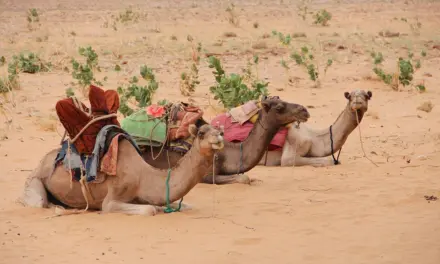

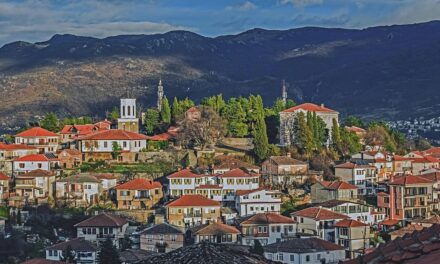


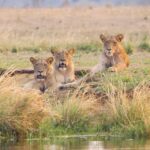

Subscribe To Our Newsletter
Join our mailing list to receive the latest news and updates from our team.
You have Successfully Subscribed!